OPENROAD OPENROAD

SUMMER 2023 / VOLUME 20 / ISSUE 2
Presenting Sponsor






Sustaining Partners
Official Providers

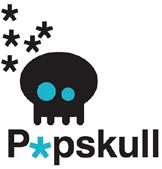

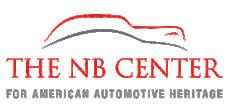







OF:
AFFILIATE INSTITUTIONS:
5
BEHIND THE WHEEL
Road trips are a family tradition for AAT CEO David Madeira.
13
8
CUBANA HAZE
ACM's Cars & Cigars proves the best way to view a Pacific Northwest sunset is through a light mist of fine cigar smoke.
30
ACM SIGNATURE EVENTSDRIVE THE BLUES AWAY
A photo gallery of ACM's popular spring social!
16
BOOKSHELF: THE LAST OPEN ROAD
Historical automotive writer Burt Levy treats us to an excerpt from his cult-classic novel.
GHOST IN THE MACHINE
Alan Galbraith explains the allure and process of his original automotive art, created using artificial intelligence.
36
RPM FOUNDATION
The many ways in which RPM's Outreach Programs spark the interest of young enthusiasts seeking to enter the automotive restoration field.
SPECIAL SECTION: MILESTONES
Acknowledging AAT's wonderful family of leaders, donors and sponsors.
10
BUYER'S REMORSE AND THE DREADED BUY-BACK SYNDROME
Celebrated automotive writer Peter Egan examines the psychology of second guessing. The doctor will see you now.
28
AAT BOARD BIO: MICHAEL TOWERS
AAT's Chairman of the Board takes the wheel to pilot My First Car.
38
FUEL FOR THE FUTURE: A STUDEBAKER'S STORY
Two former owners deliver a 1959 Studebaker Silver Hawk to ACM with a special dedication.
COVER: There he goes again — longtime Road & Track and Cycle World magazine editor Peter Egan contemplating ownership of yet another Jaguar E-Type. Will he ever learn? Find out on Page 10. THIS PAGE: Alan Galbraith's computer-generated abstract illustration of a 1966 Ford GT40, created with AI Midjourney.
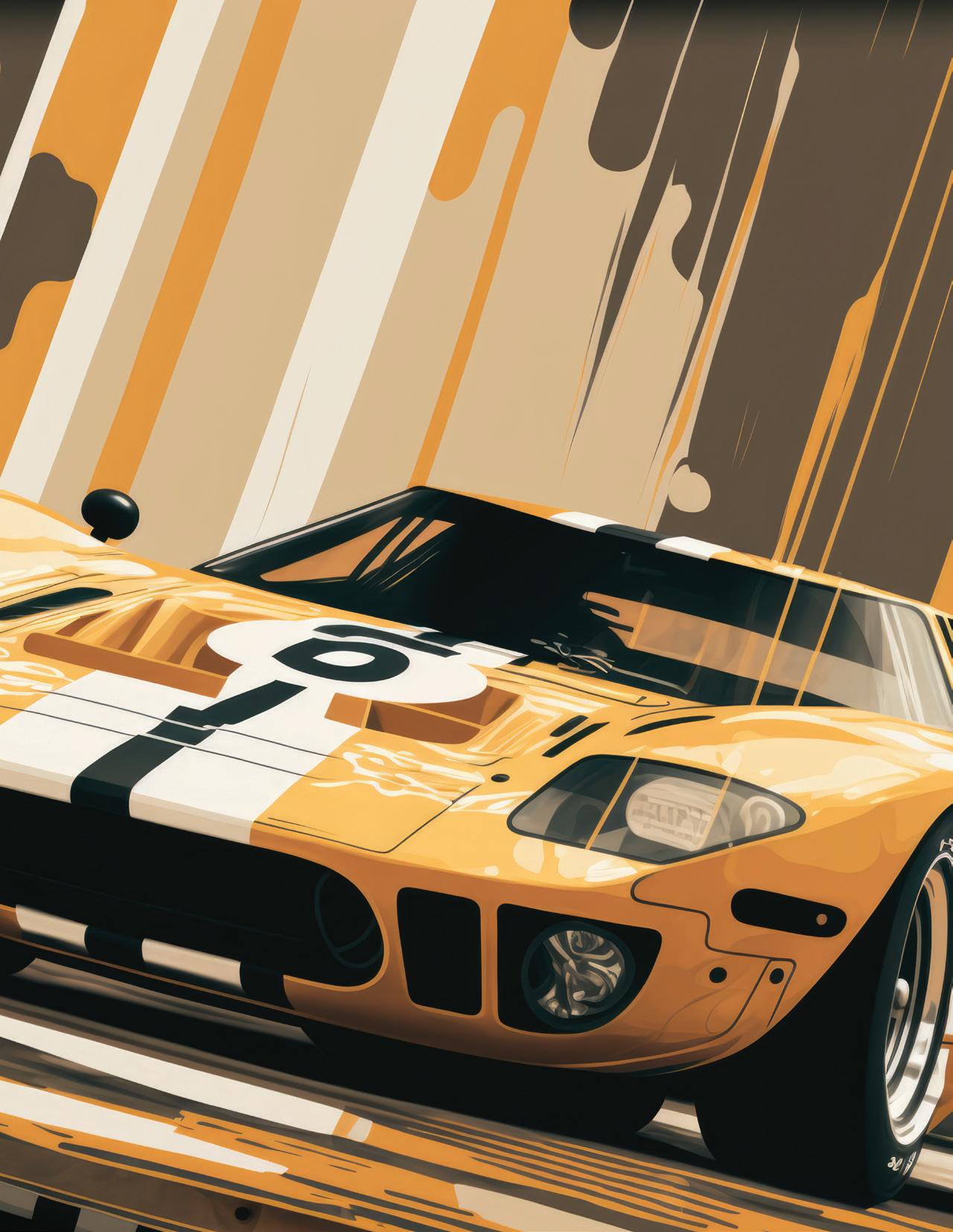
OPENROAD 3
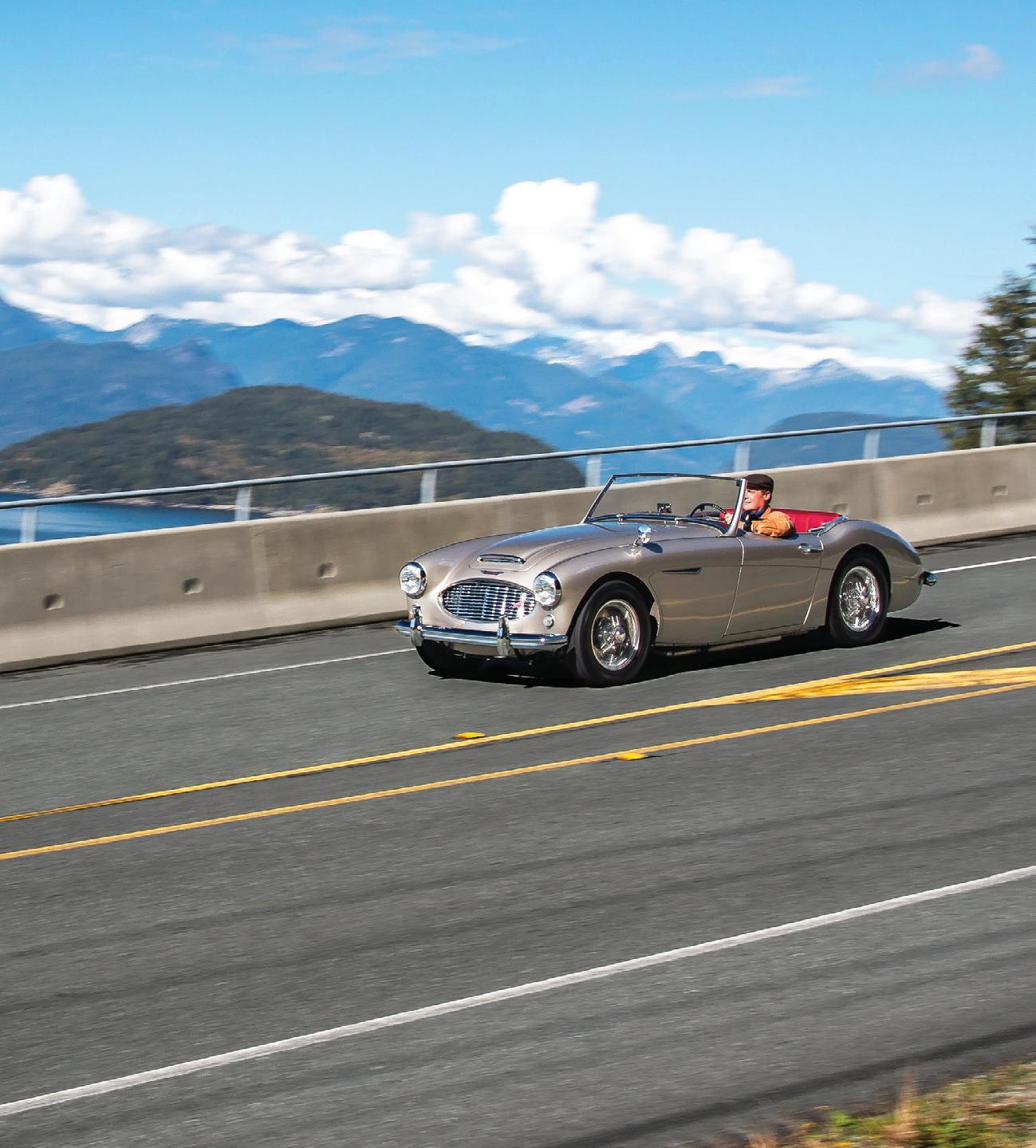
There’s not an app for this INSURANCE DRIVERS CLUB CAR CULTURE MARKETPLACE 877-922-1706 | Local agent | Hagerty.com Policies underwritten by Essentia Insurance Company. Membership by Hagerty Drivers Club (HDC), a non-insurance subsidiary of The Hagerty Group, LLC. Only the HDC Program Guide contains a complete description of benefits. Purchase of insurance not required for membership in HDC. All third party makes, models, and vehicle names are property of their respective owners. Their use is meant to reflect the authenticity of the vehicle and do not imply sponsorship nor endorsement of Hagerty nor any of these products or services. Hagerty is a registered trademark of the Hagerty Group LLC, ©2020 The Hagerty Group, LLC. All Rights Reserved.
BEHIND THE WHEEL
By David Madeira, AAT CEO
This column has always been called Behind the Wheel because I’m passionate about driving and riding motorcycles, and I love road trips! And of course, the title is descriptive of a major purpose of America’s Automotive Trust—to promote the use of collectible vehicles and to provide enthusiasts with the opportunity to engage with us and others in doing so.
Our annual The Drive Home rally to Detroit and the North American International Auto Show epitomizes those efforts. This vintage vehicle rally is now in its sixth running with each rendition from a different region of the country to the spiritual home of the automobile, Detroit. And I’m excited about this year’s run – The Drive Home: Great American Family Road Trip!
Road trips as family vacations are a long tradition in this country. I have photos of my Dad’s family on road trips from Pennsylvania to Niagara Falls, Yellowstone, Yosemite and even Mt. Rushmore in the early 1930s in their beloved Buicks – camping as they went as motels were virtually non-existent.



This reminds us of the bigger picture of why we treasure old cars, trucks and motorcycles – and why America’s automotive heritage must be preserved and celebrated. These vehicles are repositories for our memories, and as you’ll see in this issue of OpenRoad, they are catalysts for great storytelling of our shared human experience.

I’m excited that the Great American Family Road Trip run will feature ten family vehicles (vintage station wagons and even a 1st generation Minivan) departing from Jackson Hole, Wyoming and traversing an iconic route – one my own family took when I was a boy – from the Grand Tetons through Yellowstone, Mt. Rushmore, Devil’s Tower and into the industrial heartland of Milwaukee, Chicago and Detroit, where it all began. We’ll experience America’s spacious skies, amber waves of grain, purple mountain majesties and fruited plains. And we’ll meet enthusiasts and generous hosts along the way – as travelers have done throughout the years.
And, like the movie “National Lampoon’s Family Vacation,” we intend to have fun. Watch the film and then follow us on social media in our 1984 Chevy Caprice Wagon on this great adventure. And don’t be surprised if Aunt Edna shows up along the way!
OPENROAD 5 OPENROAD 5
America’s Automotive Trust
OFFICERS
CHAIRMAN: Michael D. Towers, Ambassador Wines of Washington – Seattle, WA
IMMEDIATE PAST CHAIRMAN: B. Corry McFarland, Emeritus, Cedar Management Company – Fife, WA
VICE CHAIR: Gary Gartner, NB Center for American Automotive Heritage – Briarcliff Manor, NY
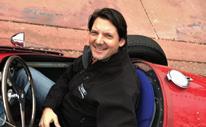
VICE CHAIR: David L. Madeira, Emeritus, America’s Automotive Trust – Tacoma, WA
VICE CHAIR: William T. Weyerhaeuser, Emeritus, Director/ Chairman – Tacoma, WA
SECRETARY: Sam E. Baker, Jr., Oles
Morrison Rinker & Baker, LLP –Seattle, WA
TREASURER: Trevor Cobb, Avantia, A Multi-Family Office – Seattle, WA
BOARD MEMBERS
Rod Alberts, North American International Auto Show – Detroit, MI
John D. Barline, Emeritus, Harlowe & Falk LLP – Tacoma, WA
Dale Bloomquist, DDS, MS –Seattle, WA
Stephen Boone, Emeritus, Retired Ford and Harley-Davidson Dealer –
Olympia, WA
Nicola Bulgari, Emeritus, BVLGARI S.p.A – New York, NY
Frank Chang, Flying Fish Partners –Seattle, WA
Doug Clark, Hagerty –Traverse City, MI
Dawn Fisher, MFD Classic Motors, Inc. – Traverse City, MI
Keith Flickinger, The NB Center for American Automotive Heritage –Allentown, PA
Alan Granberg, Auto Enthusiast –Lakewood, WA
Dr. Gerald Greenfield, Retired Dentist – Lake Tapps, WA
McKeel Hagerty, Hagerty –Traverse City, Michigan
Tom Hedges, Emeritus, Co-Owner Hedges Family Estate – Benton City, WA
Michael Holmes, Holmes Electric –Kent, WA
George Ingle, The Ingle Company –Spanaway, WA
Marwan Kashkoush, Retired, Parker
Hannifin Corporation – Seattle, WA
Doug LeMay, Emeritus, LeMay
Investments, LLC. – Tacoma, WA
Nancy LeMay, Emeritus, LeMay
Investments, LLC. – Tacoma, WA
James Gary May, Hopewell Land Partners – Windemere, FL
Paul E. Miller, Emeritus, LeMay America's Car Museum – Tacoma, WA
T.G. Mittler, Auto Enthusiast –Santa Fe, NM
Tom Nault, Middlerock Partners, LLC. – Kirkland, WA
Continued on page 7
IN THE HEADLIGHTS
September marks a month-long celebration of station wagons at LeMay – America’s Car Museum. Not only are the beloved family haulers featured on this year’s cross-country roadtrip The Drive Home: Great American Family Vacation, but get ready for the sixth-annual WagonFest PNW, hosted by Avants! The largest gathering of grocery getters in the universe is coming to ACM on Sunday, September 24th, starting at 9 am.
Old and new…foreign and domestic…long roof and longer roof! If it’s a wagon, bring it.
Tickets are $30, which includes a spot in the show and one general admission ticket to the Museum, as well as a WagonFest PNW 2023 sticker. Avants members and LeMay – ACM members save $5 on tickets. Use coupon code “AVANTSFIVE” during the checkout process through www.avants.com
Spectators/passengers are free, so pack up the family truckster and bring the whole gang.

OPENROAD PUBLICATION CREDITS
Managing Editor & Head Writer William Hall
William “Kid” Hall is an automotive journalist based in Elkhart Lake, Wisconsin, whose work has appeared in Hemmings Motor News, Classic Car Journal, RM Shift and Prancing Horse magazines, among others. His personal collection of cars skews classic Italian, with a few ‘70s era Muscle Cars and a growing collection of vintage motorcycles for good measure.
Contributors: Special thanks to Aimee Hodorowski for the back cover Driver's Club photo, Alan Galbraith for his featured original artwork, and Jake Welk for photos throughout. 1000WordsEvents provided photos for both Drive the Blues Away and Cars & Cigars galleries.
ADMINISTRATION
Art Direction & Graphic Design
Jennifer Weitzman, jamgd: jamgd a design firm located in Madison, Wisconsin — having a long history working with the RPM Foundation — they now bring their talents to this publication. jamgd.com
AAT CEO: David L. Madeira — America’s Automotive Trust — Tacoma, WA
AAT Vice President for Government Relations: Paul E. Miller — LeMay-America’s Car Museum — Tacoma, WA
ACM Excecutive Director Ex Officio: Gary Yamamoto — LeMay-America’s Car Museum — Tacoma, WA
RPM Executive Director Ex Officio: Nick Ellis — Chicago, IL
Please Address Correspondence to America’s Automotive Trust/OpenRoad 2702 East D Street Tacoma, WA 98421 Phone: 253.779.8490 Toll Free: 877.902.8490 Fax: 253.779.8499 Website: americasautomotivetrust.org
Please note: Not all of the automobiles depicted in OpenRoad are on display or part of the ACM Collection. Some of the photographs were chosen in order to illustrate or enliven a featured story while others were selected purely for their artistic merit.
Subscription to OpenRoad magazine published by America’s Automotive Trust is a benefit of Silver Key Driver membership and above. America’s Automotive Trust is a 501(c)(3) non-profit organization. A portion of your gift towards membership and sponsorship are tax deductible.
6 OPENROAD OPENROAD 6
ALONG FOR THE RIDE
By William Hall Managing Editor
As automotive enthusiasts, we have a fascination and understanding of machinery. Which is why machine learning, or artificial intelligence (AI for short) – an emerging technology that has been in the news as of late – may seem especially dubious to us. CBS News recently interviewed Google CEO Sundar Pichai about AI, who stated, “This is going to impact every product, in every company.” When asked which jobs would be disrupted, he answered, “knowledge workers: people like writers, accountants and architects.”
Now, anyone who has used the internet probably realizes the last thing we need is more churnalistic content – automated or not –taking the place of authentic, incisive human experience. Truly, these are dire times for creative people.
No sooner than I’d licked the postage stamp on my job application as a Trappist monk, I received an email from AAT CEO David Madeira challenging me and the Trust’s marketing, development and curation teams to help take OpenRoad in the opposite direction of the trend, doubling down by telling more 100% human-generated stories of our shared love affair with the automobile. Game on.
To that end, I reached out to “America’s Favorite Automotive Writer”, Peter Egan. In his 30-year stint as editor for Road & Track and Cycle World magazines, he’s garnered a fervent following for his witty storytelling on our relationships with cars and motorcycles, the places they take us, and the people we meet. There is no better champion we can muster against the threat of computer-generated media mediocrity. His psychological self-examination of reacquiring a lost love begins on page 10.
By way of introduction, “The World’s Fastest Novelist” Burt “B.S.” Levy, offers an excerpt from his rollicking 1950’s-set road racing tome, The Last Open Road. Burt has been fixing, selling, racing and writing about cars for more than half a century, and he’s uniquely qualified to represent all of humanity’s fabulous foibles in the pages of OR, distilled through the fictitious character of Colin St. John, elegantly veneered sports car dealer extraordinaire.
Nevertheless, as gearheads we can’t help but tinker with this new-fangled AI thingy. So, we asked Alan Galbraith – whom you know as founder and Head Wingnut of the Concours d’Lemons, the irreverent traveling car show which embraces the odd, misunderstood, and downright disturbing of the automotive world – to display and explain some of the beautiful automotive art he(?) created just by feeding word suggestions into Midjourney, an AI computer application. Intrigued? We hope so.
With all this in mind, how best to reply to David Madeira’s challenge? Fittingly, a quote from one of the first AI computers (rather unsuccessfully) implemented in the field, Arthur C. Clarke’s HAL 9000 from 2001: A Space Odyssey: “I’ve still got the greatest enthusiasm and confidence in the mission. And I want to help you, Dave.” What could go wrong?

BOARD MEMBERS
Continued from page 6
Michael J. Phillips, Emeritus, Altaira Wealth Management – Clyde Hill, WA
Al Ruozzi, RB Car Collection –Allentown, PA
Paul Sabatini, Lincoln of Troy –Troy, MI
Steve Saleen, Saleen Automotive –Corona, CA
Manfred Scharmach, BMW Northwest, Northwest Mini, Seattle Mini, Northwest Pre-Owned Center – Fife, WA
Jonathon Shaw, Hemmings –Bennington, VT
Jason Wenig, The Creative Workshop – Dania Beach, FL
James M. Will, Emeritus, Titus-Will Enterprises, Inc. – Tacoma, WA
STEERING COMMITTEE
Sandra Button, Pebble Beach Concours d’ Elegance –Carmel, CA
Jiyan K. Cadiz, Ford, North American Enthusiast Vehicles –Detroit, MI
Gill Campbell, Aero Marketing Group – Monterey, CA
John Carlson, National Association of Automobile Clubs of Canada Corporation – Belcarra, BC, Canada
Rick Dore, Rick Dore Kustoms –Carlsbad, CA
Nicolle Girard, Hagerty – Traverse City, MI
Alan Grant, LARGE Architecture –Los Angeles, CA
Peter Hageman, Suite 200 Automobile Collection – Kirkland, WA
William Hall, Auto Journalist –Elkhart Lake, WI
Lindsey Harrell, Hilton Head Island Concours d’ Elegance & Motoring Festival – Hilton Head Island, SC
Andrew Hogan, Auto Enthusiast –Gig Harbor, WA
Paul Ianuario, Retired Curator of the BMW Zentrum – Duncan, SC Rock Jenkins, State Farm – Tacoma, WA
Al McEwan, Suite 200 Automobile Collection – Redmond, WA
Glenn Mounger, Pebble Beach Concours d’ Elegance – Bainbridge Island, WA
Pamela Chavez Rosen, External Advisor, Shell Oil Company –Houston, TX
Ken D. Ross, Auto Enthusiast –Detroit, MI
Blake Siebe, Northwest Auto Salon, Right Away Tire – Lynwood, WA
Jeff Stumb, The Great Race –Chattanooga, TN
Kristen Wells, Avants – Seattle, WA
Drew Weyerhaeuser, Auto Enthusiast – San Francisco, CA
Gina Zinn, State Farm – Tacoma, WA
America’s Automotive Trust
Ashley Bice AAT Director of Strategic Initiatives & Marketing Crystal Buxton ACM Guest Services Manager Sarah Collins AAT Executive Assistant to the CEO Kelsey Cross ACM Education Manager Noah Down AAT Advancement Officer – Western Region Gabriel Mosse AAT Director of Development Pandora Paúl AAT Curator Bianca Reynaga ACM Volunteer & Recruitment Coordinator Diane Flis-Schneider AAT Advancement Officer –Mid-Eastern Region Ann Sweeney ACM Sales & Events Manager Amy Walsh ACM Collections & Office Coordinator Nathan Wambold AAT Advancement Officer – Eastern Region Jake Welk ACM Marketing Manager
Contact AAT Administrative Office 253.779.8490 or info@americasautomotivetrust.org OPENROAD 7 OPENROAD 7
ROADSIDEASSISTANCE
Dance through the Decades




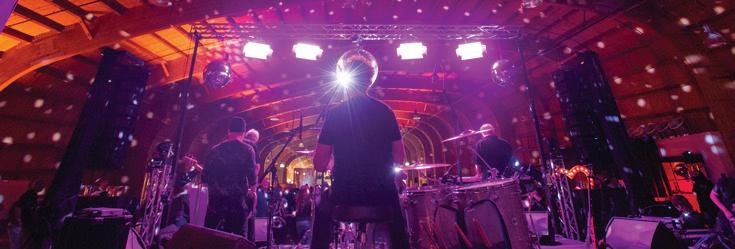



ACM SIGNATURE EVENTS 8 OPENROAD OPENROAD 8




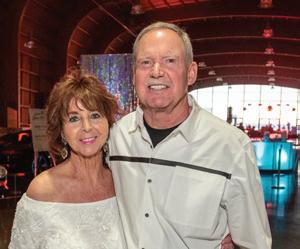
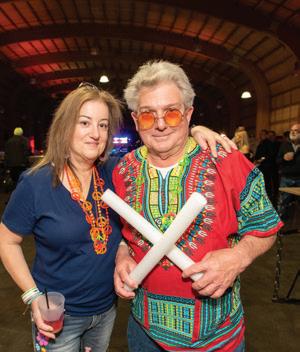
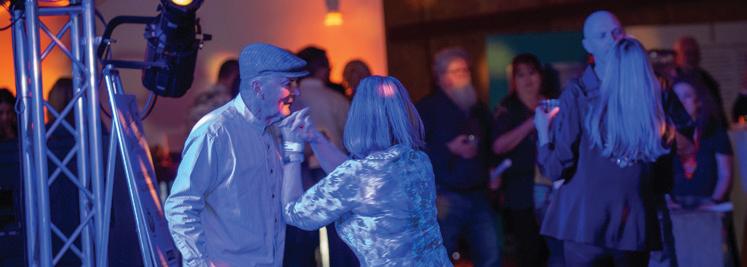



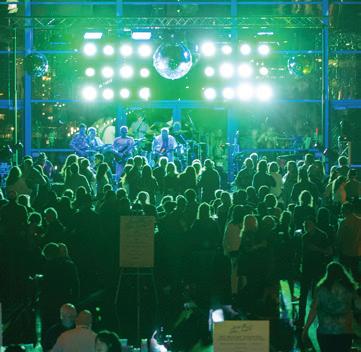

OPENROAD 9 OPENROAD 9

10 OPENROAD 10 OPENROAD
Seller’s Remorse and the Dreaded Buy-Back Syndrome
By Peter Egan
Having somehow reached advanced adulthood in reasonable health, it’s been a recurring dream of mine to win the mega-million-dollar Powerball Sweepstakes and spend my retirement years tracking down and buying back all the cars and motorcycles I once owned.
I’ve had a roughly equal number of cars and motorcycles over the years – about 95 of each – so I’d probably have to hire a good detective agency to help with the search. Or maybe an archeologist, in some cases. I suspect my dangerously rusty ’66 Ford Ranch Wagon tow car is now one with the earth and only the plastic parts remain. It was last seen at a bumpy railroad crossing, where the frame broke in half and all the side windows popped out.
Naturally, the vast funds from Powerball would also allow me to build a large museum-like structure to contain all these cars and bikes. This would be located close to our house so that on cold winter evenings I could pour myself a single-malt scotch and stroll through the building to ponder all these vehicles, remembering the past or just soaking up the esthetic charm that drew me to them in the first place. Any proper garage, regardless of vehicle count, is really just an art gallery for the mechanically inclined.
Sadly, I’ve yet to win any form of lottery, but the allure of certain designs never fades and some of us are always on the lookout for a nice example of a car or bike that won our hearts years ago and that we soon regretted selling. Occasionally, the exact vehicle turns up for sale again and we are helpless not to act. This has happened to me only a few times.
Some years ago, I sold a 1964 Porsche 356B to an old friend in California. It was a nice car, burgundy in color, but I’d decided I needed a Reynard Formula Continental to go racing that season, rather than a pleasant old sportscar in the garage. About three years later my friend suffered a minor stroke and was no longer able to drive. So I flew to California, re-purchased the car at the same price, and drove it home to Wisconsin. I had it for about 2 years before a new and improved formula car reared its head, and the 356 moved on to a new owner.
Do I miss the Porsche?
Yes, and I still peruse the pages of Hemmings and the listings on Bring-A-Trailer to check for old 356s for sale, but I don’t miss the car enough to pay current prices. My old 356B traded hands three times in the ‘90s for $14,000, which I thought was a fair price at the time. The problem is, I still do.
Stuck in pre-inflationary time, you might say. The same is true of Series 1 E-type Jaguars. I owned and restored two of them when they were in the $20,000-$30,000 range, but I may have to wait for that Powerball win before I seriously go on the hunt for another one. In my IRA-funded retirement years, it’s the affordable classics that warm my heart.
Others I’ve sold and later bought back were old favorites that needed rescue from either neglect, high-mileage wear or having become a stalled restoration project in the back of someone’s garage. These include a 1981 BMW R100RS motorcycle, an early ‘70s Lola 204 Formula Ford with a bent frame and a 1960 Austin-Healey Bugeye Sprite. Like my friend Richie Mayer, who calls himself “the patron saint of lost causes,” it breaks my heart to see nice old vehicles that need a little help to get back on the road. My wife Barbara has exactly the same problem with lost animals. She works at a no-kill cat shelter and a dog rescue organization. We have seven rescued animals as house pets. My workshop simply reflects a mechanical version of the same instinct.
OPENROAD 11 OPENROAD 11
"Any proper garage, regardless of vehicle count, is really just an art gallery for the mechanically inclined."
Sometimes, however, no saintly altruism is involved at all. Sometimes we just want an old favorite back because it looks good, performs well or defines, in some subtle (or possibly ostentatious) way, who we are. Or at least who we imagine ourselves to be. In those cases, we look back on a vehicle we once owned and ask ourselves, What on earth was I thinking when I sold that thing?
It happened to me this summer. Last weekend, actually.
Barb and I drove to Road America for the motorcycle races and stayed with our friends Bill and Lauren in Elkhart Lake. (“Bill” incidentally, is William Hall, the Editor of this fine magazine.) Three years ago, I sold him my 2016 Triumph T-120 Bonneville to help fund the purchase of a new family car and soon began to regret my decision, wishing I’d simply taken out a larger car loan. I’ve owned Triumph Twins all my adult life and have almost never been without one. It didn’t seem right. I felt like Winston Churchill without a cigar. Also, I missed the bike’s smooth and deeply torquey 1200cc engine, and just its presence in the garage.
Luckily, Bill was kind enough to sell the Triumph back to me – with a right of first refusal guarantee – and I rode it home from the races while Barb followed in our car. The car, in this case, was our 2002 British Racing Green Jaguar XK8 convertible. The second one we’ve owned. Never should have sold the first one.

The reader may see a pattern here, and I have to admit to being a repeat offender with several favorite marques and models of cars and motorcycles, sequentially owning, at various times in life, two Triumph TR-3s, four Bugeye Sprites, three Lotus Sevens, four Norton Commandos, four Ducati 900 Super Sports, two MGBs, three Honda 400F Super Sports, three Suzuki DR650s, three Harley-Davidson Road Kings, two Harley-Davidson XLCR Café Racers and the two Jaguar E-types and XK8s already mentioned. And I’d be perfectly happy to have all or any of them back in my garage. Or at least one good example of each.
I’m not quite sure what to make of this. A not-so-rare form of mental illness, perhaps? Einstein is supposed to have said that the definition of insanity is “doing the same thing over and over and expecting a different result.”
Fortunately for some of us, he didn’t say anything negative about doing the same thing over and over and looking forward to exactly the same result. Certain forms of satisfaction are timeless and bear repeating.
12 OPENROAD 12 OPENROAD
"It didn’t seem right. I felt like Winston Churchill without a cigar."
CUBANA



Sun, fun, rum and cigars — ACM’s popular Cars & Cigars returned to the Anderson Plaza on August 4th for a sold-out event sponsored by BMW Northwest. The Latin-inspired party featured music by Los Flacos, VIP cabanas, and wonderful food and drink under a gorgeous Pacific Northwest sunset.


Special thanks to Griot's Garage for the display of their McLaren, and to Steve Rimmer of Dirtfish for the display of his 1982 Lancia Rally 037 Stradale, one of only 200 FIA Group B homologation specials built for street use. Winner of the 1983 Group B Constructor’s Title, the likeness of these striking Lancias are well-known to a generation of video gamers, but they are rarely seen in person and it made for perfect eye-candy for the event.
Cars & Cigars
AT AMERICA’S CAR MUSEUM

OPENROAD 13 OPENROAD 13





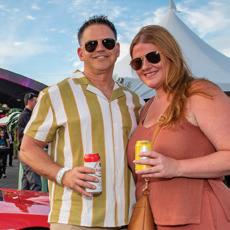
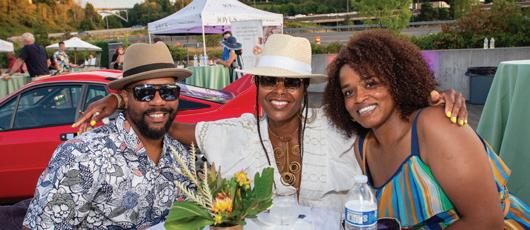
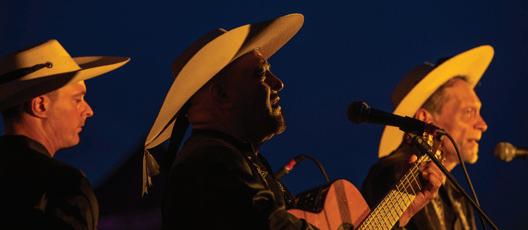


14 OPENROAD
Cars & Cigars





AT AMERICA’S CAR MUSEUM


OPENROAD 15

16 OPENROAD PORTFOLIO
Photo and Original Artwork by Alan Galbraith
Ghost in the Machine
By Alan Galbraith

Iwas born with a curse. I have an eye for design, but little illustrative ability. Painting and drawing courses have always ended with a platitude that went something like, “well, at least you’re good at <insert any talent other than illustration>”. So, when I heard of a new tool that allows one to generate images from text, I was intrigued. Thus began my exploration in the world of artificial intelligencegenerated art. While most are using this new tool to create reality bending images of purple cows eating pancakes on Mars, my automotive enthusiast background steered me towards creating motorsports related images. But before I dive into the process of making some of these images, let’s look under the hood at the engine driving it all, generative artificial intelligence programs, and what got us to this point.
Most of us are used to searching the internet for an image, let’s say a “yellow balloon,” for example. In the early days of search engines, once you hit “find” the computer would scour the internet for items captioned as “yellow balloon”. This works great if every picture on the internet was captioned, and captioned correctly. However, most are not. So, example pictures were fed to search engines telling them “This IS a yellow balloon”,

OPENROAD 17 OPENROAD 17
and the programs would then compare pixels that make up the example yellow balloon picture and look for similar in cyberspace. The results would return images of yellow balloons, but also lemons. A better but not perfect system. Stepping from finding existing images to creating new ones, the computer programing and math involved gets really deep, really fast. Mathematical and statistical models take over. Terms that I don’t pretend to understand, like “variational autoencoder” and “generative adversarial networks” become the norm. These programs are fed as many photos and text descriptions as possible on an ongoing basis, continuously refining the program’s “understanding” of images and allowing them to not only find pre-existing images but create new ones.
These technologies are relatively new, with many developed in the mid-2010s. Developed in parallel were programs that deciphered “natural language” text-based inputs. The integration of the two led to programs that, when fed the text prompt of “yellow balloon” would return a newly created image of a yellow balloon. Which is great if you like balloons. But what if you are a motorhead like me? Well, start your engines.
Throughout my life I’ve been exposed to all manner of art depicting automobiles: concept drawings, event/racing posters, brochures, magazine spreads, advertising and models. When I discovered the generative AI program Midjourney (Midjourney.com), my first thought was to release some of the automotive images that were locked in my head by my lack of artistic talent. One of the


PORTFOLIO (continued) 18 OPENROAD

OPENROAD 19

PORTFOLIO (continued) 20 OPENROAD
outstanding – and some would say controversial – features of Midjourney is the ability to create images in the style of a particular artist through entering plain text descriptions. What if Art Fitzpatrick or Van Kaufman, known for their 1960’s Pontiac brochures, painted a scene with a white 2017 Mercedes AMG GT in it? What would a drawing of a vintage Ferrari at a racetrack done by futurist Syd Mead look like? Thirty seconds after typing in the words “Syd Mead drawing of a vintage Ferrari at a racetrack”, I had my answer, and the answer was amazing. The algorithms behind Midjourney took the text and “knowing” the style of Syd Mead and what a vintage Ferrari looks like, created a stunning scene that looks like it came from Syd’s own drafting table.

Which is where some of the controversy comes in. Some would argue that when naming a particular artist to emulate, the programs are doing nothing but ripping off the works of those artists. There is certainly some merit to this thinking. However, emulation, if not straight up plagiarism, is not new in the world of creative expression. How many guitar players emulate the styles of those that have come before them? Wasn’t Stevie Ray Vaughan’s style just an ever-so-slight twist on Jimmy Hendrix's? Prince lifted pieces of James Brown’s style wholesale for his act. Painters would gather with the expressed intent of copying each other’s style and led to what we know today as different “movements”. No one looks down on Monet for being like other painters in the Impressionist movement, or Charles and Ray

OPENROAD 21
Eames for incorporating abstractionist elements into their mid-century modern industrial designs. I’ll leave you to reach your own conclusion on the ethics of generating visual art, music, film, architecture, or any other creative output in the style of an existing artist. But if you ever wished to have a Salvador Dali painting of your car, that can be made real with just a few keystrokes.
One of the less controversial aspects of AI art generation is to create art not based on an existing artist’s work, but rather in general styles. Prompts like “Character Design, Double Exposure Shot, Vintage Bugatti filled with drivers and people in fancy clothes” or “Abstract illustration of a 1966 Ford GT40” yield wildly differing results. Each image generated leads to new ideas for text descriptions. It’s much like playing with the knobs on synthesizer keyboard, creating new and unexpected sounds that can lead to inspiration for a new song. The programs let you pick images you like and make new iterations of them, emphasizing certain elements or mutating at random. Reaching the image you envisioned can sometimes take dozens of iterations. Hours can pass in the search of just the right combinations. A little skill in Photoshop can go a long way to combining elements from different images into the intended vision.

Some may argue that this cuts out traditional artists and illustrators from being employed at their craft. I would maintain that AI art generation is imprecise at best. It’s unlikely that it will replace the human give-and-take of employing an artist to render a scene and make revisions based on

PORTFOLIO (continued) 22 OPENROAD

OPENROAD 23

PORTFOLIO (continued) 24 OPENROAD
a mutual understanding of the desired output. The AI technology just isn’t refined enough to fully conceptualize the nuances of human artistic vision. The programs behind it only understand how to piece together bits and pieces of what it has been fed. It’s a pretty good mimic, but hardly a replacement for human creativity.


One thing AI art generation does do is bring the ability to create images home to those that lack illustrative abilities themselves. I encourage you to try it and see for yourself its strengths and limitations. Be prepared for hour upon hour at your keyboard. You might even want to consider clearing some wall space in your garage for your newly created masterpieces.

OPENROAD 25
AI and Automotive Design Modeling
What if car designers of the past had access to artificial intelligence?
For all its gee-whiz, when it comes to accurately reproducing images of cars, AI can fail spectacularly. Which is puzzling, because there are plenty of captioned car photos floating around cyberspace for its hive-mind to draw upon. Type in “1970 Pontiac GTO” or “1971 Alfa Romeo Spider” to Midjourney, and you may get something completely wrong but nonetheless compelling. Which makes us wonder how the creative process could have been affected – or will be in the future – in vehicle design. Would our classics look the same if automakers had AI input and a tool for rapid modeling?
Mind of its own: The blue car is a real 1970 Pontiac GTO, along with four generated image options conjured by the Midjourney bot in illustration format. What’s notable is the seamless incorporation of existing elements cribbed from other muscle cars, which make for an interesting design study. The Chevy Chevelle was the only GM A-body of that era to feature single headlamps, but the bot clearly seems to favor them for the Poncho.


There’s lots of Buick GS and Pontiac Firebird mixed in there, and dare we say some 1970 AMC Javelin? Looks like a duckbill-style rear spoiler, which was actually used on some GM prototypes. Interesting design choices made by this program, and not all unpleasant.
Not quite right, not quite wrong: One of Italian design house Pininfarina’s most enduring creations is the 1970’s Alfa Romeo Spider, but Midjourney had some interesting variations on the theme rendered in hyper-realistic format. Without mentioning Pininfarina in the commands, AI cribbed design cues from the coachbuilder’s other cars, including Fiat’s 124 Spider and Dino Spider, along with some other bold choices. An asymmetrical hood crease detail is something only an avant-garde Italian coachbuilder would embrace in 1971.


26 OPENROAD 26 OPENROAD
What was it thinking? Giving AI a longer instruction led to these extremely inventive yet somehow plausible takes on a 1974 Alfa Romeo Berlina. Though its renderings are absolutely incoherent from the Alfa, they intuitively capture the ethos of the earlyMalaise Era cars like the AMC Pacer and Ford Pinto with a decidedly European twist. While very forward looking, there’s nothing in these designs that couldn’t have been produced using 1970’s materials and methods. AI was really free-thinking on this one, suggesting design possibilities in a completely different direction.


OPENROAD 27 OPENROAD 27


AAT BOARD BIO 28 OPENROAD 28 OPENROAD
MICHAEL TOWERS, Chairman
of the Board
My First Car
My love affair with the automobile began as a young boy. I grew-up in the 1950’s when new car models were introduced in September of each year. My great uncle Ed owned a Cadillac, Buick and Pontiac dealership in eastern Oregon. My grandfather and I were always at the unveilings. Ed would show us all the new cars, explain the changes, etc. I was totally captivated.
Ed was born in 1876 and died in 1977. On his 100th birthday, I asked what he thought was the most significant change in his lifetime. Without hesitation, he replied “the automobile.” He said it gave us freedom.
Three cars stand out in my life. As a broke teenager, all I could afford for my first car was a rough 1953 Ford with a flathead V-8. The master brake cylinder leaked, the paint needed work, and something always required fixing. I learned a lot about auto repair on the cheap with that car. Not much of a car, but as my great uncle said, it gave me freedom.
The first car I really fell in love with was a 1958 Pontiac Bonneville. The nation was in the early stages of the Space Race and cars were showing design elements that reflected planes and rockets. The ‘58 was a transition style and only produced for one year. To a young boy it was beautiful. Long, low and lots of power (as Pontiac was joining the muscle car world). It made getting a date a lot easier.


The third car is an Aston-Martin Vanquish S. I’ve loved Astons since I first saw Sean Connery driving a DB5 in Goldfinger. I saw a 2006 Vanquish soon after they were released and vacillated over the cost, storage, etc. I kept finding new excuses not to own one, but I really loved that car. Finally, my wife looked at me and suggested that perhaps I should buy the car before I was too old to drive it. I had permission, and I bought it the next day.
Each of these cars have special memories for me. As I watch guests at the museum, I see parents telling their children stories involving a particular car in the collection. Each classic car has a story, and those stories must be preserved.

OPENROAD 29 OPENROAD 29

30 OPENROAD BOOKSHELF
EXCERPT: The Last Open Road
By Burt Levy
(Editor: It’s been a busy summer for our favorite novelist, Burt “B.S.” Levy. Fresh from his induction into the British Sports Car Hall of Fame – alongside racers David Hobbs and Brian Redman, no less – and his invitation to serve as Honorary Starter at the Pittsburgh Vintage Grand Prix, Burt contributed to OpenRoad an excerpt from his cultclassic racing novel The Last Open Road for ideal summer reading.)


Colin St. John came to these United States in early 1946, carrying a slight limp that was a souvenir of The Big One and deep, empty pockets he intended to fill with Yankee greenbacks. He was a tall, elegant-looking English gent with leather patches at his elbows and the aristocratic bearing of a stiff buggy whip. Colin always wore one of those snappy tweed caps “whilst motoring in an open car,” and was forever puffing on this big, curlicue Swiss pipe with little silver dangle chains and perforated tin breeze lids. I thought it was the coolest thing I’d ever seen. And the way he talked! Like a blessed duke or prime minister or something. Why, it made you feel like some kind of crude, boorish New Jersey Neanderthal just listening to him.
The disappearing act Colin pulled that first time I drove up to the Westbridge shop was part of a carefully orchestrated scheme he worked on every new prospect. By vanishing the moment you appeared, he set the idea in motion that he was a very busy fellow who really didn’t need any additional business—thank you very much—but if you wanted, you could
OPENROAD 31
wait around for a chance opening to appear in his frightfully busy schedule (pronounced shedge-yewel).
You did have an appointment, didn’t you?
I got to know Barry Spline and Colin St. John pretty well, and spent a lot of company time listening to Colin tell exciting World War II adventure stories in that fancy British accent of his. Once Colin saw I was spending some serious cash in the parts department, he’d flash me a behind-the-hand wink and draw me off to the side for a semi-private snort of scotch. Especially if it was around lunchtime or toward the end of the day. Colin kept a couple souvenir shot glasses from Niagara Falls and a bottle of Glen-Something-or-Other scotch hidden behind the service counter (where everybody and his brother knew exactly where it was) and it was a sign that you had indeed joined the Inner Circle when Colin St. John invited you to “share a swifty” with him.
“Care for a swifty, sport?” he’d say as he poured a couple quick shots down Niagara Falls. Personally, I thought Colin’s fancy scotch tasted an awful lot like mineral spirits, and suspected he might be topping up the bottle now and then with whatever was on sale at the liquor store down the street. So I put a little pencil mark on the label one day when Colin wasn’t looking, and would bet you a double sawbuck he’s got that same damn bottle today, still precisely two-thirds full of the cheapest rotgut Scotch, Irish, Rye, Canadian, or Old Kentucky sour mash whiskey he can lay his hands on.
He doesn’t think Americans can tell the difference.
Like everyone else in England, Colin had a rough time of it during World War II. That’s where he got his stiff-legged limp (which some-times—I swear! —seemed to move from one leg to the other) along with the most astounding collection of eyewitness combat stories you ever heard. A couple snorts would get him rolling anytime: Up against Rommel in North Africa! Barely scraping out at Dunkirk! Taking on Goering’s finest in a shotup Spitfire! Cheating death with the bomb-disposal lads! They were all true, too. Every single one of them. That’s because Colin heard them all firsthand in the hospital ward where he spent the majority of 1943 after falling off the tailgate of a truck in a dark London alley while unloading a shipment of black-market creamed chipped beef. I guess it was touch and go for awhile and there was some question as to whether Colin would ever walk again (at least before the war ended, anyway), but a Luftwaffe bombardier brought about a miracle recovery one night when he accidentally dropped a thousand-pound incendiary smack on top of the hospital wing. Colin amazed the entire staff by being first man to the far side of the lawn, handily beating out an Army surgeon who’d been something of a track star at Cambridge.
After the war, Colin St. John journeyed to America to seek his fortune (or anybody else’s that might be available—he wasn’t real particular in that respect) and opened a little back-alley foreign
car agency on the west side of Manhattan, just off the George Washington Bridge. Colin decided to call it Westbridge (get it?) and the moniker was just perfect for a lah-de-dah British sports car shop, on account of it sounded so upper crust, blue-blooded, and snooty. Jaguar customers expected that sort of thing.
Colin’s foreign car business grew and prospered over the years in spite of high prices, shoddy service, and the business ethics of an Armenian rug merchant. That’s because every single playboy, sugar daddy, and black sheep heir in the greater metropolitan New York area just had to have himself one of those sexy new Jaguars. Or at the very least an MG. As Colin explained repeatedly to every virgin sales prospect: “A true sport requires a true sports car,” and the rich, trendy, fashionable types around town were all ears.
Colin St. John sold just about everything that crossed the Atlantic at one time or another (including such gems of European automotive artistry as the Renault Dauphine, Hillman Husky, Humber Super Snipe, and the usual assortment of Fiats) but his main stock in trade was always Jaguars and MGs. Business was better than good, and West-bridge moved to larger quarters in 1951. Colin made himself a lot of money during the 1950s.
But success in the car business came naturally to Colin, since he “grew up in the motor trade” (as he called it) and knew all the ropes to pull, fancies to tickle, and angles to shoot. His father owned a garage near London that sold rough, high-mileage Rolls Royces and Bentleys to people who probably should’ve bought a new Ford instead, and Colin learned at his father’s knee that the key feature in any automotive transaction was the split between how cheap you could buy and how high you could sell (after bumping out a few dents and covering it all with a quick-and-dirty respray, anyway). Barry Spline told me a great story about a would-be gentleman who bought a well-abused Bentley from Colin’s dad, then tried to return it the same afternoon after hitting a pothole and knocking a chunk the size of a league ball out of the rocker panel. Underneath was nothing but a huge rust crater filled with wadded-up newspaper. As you can imagine, the guy was pretty upset.
“Look
at THIS!!”
He waved his fist under Colin’s father’s nose,
“You told me this car was in absolutely PRISTINE condition!”
“Oh, and I truly thought it was…The agent I bought it through has always been totally reliable in the past.” He wrung his hands as though his entire faith in human decency had been savagely trampled. “Just imagine…the scoundrel swore it came from an estate sale. Told me the motorcar belonged to a third cousin of the Dsuke of Windsor himself! Why, to think anyone would have the brass to patch up a Bentley with putty and old newspapers....”
32 OPENROAD
BOOKSHELF (continued)


34 OPENROAD BOOKSHELF (continued)
“OLD??!!!” The guy grabbed Colin’s dad by the necktie. “Why, this is YESTERDAY MORNING’S BLOODY FIRST EDITION!!”
Of course, Colin’s Manhattan dealership was entirely different from his father’s used car garage in England, on account of the new car and used car businesses were, to use Colin’s words: “as different as chalk and cheese.” After a few shots of scotch, he’d explain at length how the retail car business worked. “You see, every used car is unique—has its own character, its own perfume, its own romance—while every new automobile is essentially i-dent-i-cal to every other blasted one they push off the assembly line. The only real differences are color and trim.”
“So?”
“So, indeed! Boil it all down to essentials and you realize that the price of a used car is governed only by the glimmer in a chap’s eye or the faintly detectable quickening of his pulse, whilst the profit on a new car is sadly subject to the eternal and inescapable laws of supply and demand.” Colin St. John understood those laws perfectly, and that’s why he kept every shipment of new Jaguars stashed in a windowless meat truck garage on the other side of town. All except one, that is, which he would place on the little twelve-by-sixteen Oriental carpet in front of the fake maple partition that separated Colin’s “showroom” from the rest of the Westbridge shop. That’s how every single XK120 Colin had came to be “…absolutely the last one in the country.” And he wasn’t above taking multiple deposits (or multiple futures on “the next one coming in”) and using the money for general operating expenses.
Plus there was always a story. A little romance. For example: “This particular example was ordered for the Earl of Buxton. He summers in the Hamptons, don’t you know. But the poor chap was killed in a hunting accident before he could take delivery. Happened just a fortnight ago. Most unfortunate business. On Safari in Africa with his new bride (don’t think she was a day over eighteen—it was quite the scandal in the House of Lords) when the poor devil got himself trampled by a charging bull elephant! Bloody gun jammed. A shame, really. And the lads in Coventry worked so hard to match that precise shade of royal blue from the family crest.”
Colin’s upscale New York customers ate it up.
But the real money at Westbridge didn’t come from selling cars. No sir. It came from the maintenance and repair business they generated once those Jags and MGs were out prowling the streets. That’s because if there was one thing a Jaguar or MG needed with great regularity, it was to be fixed. Especially if it belonged to some country-club rube who grew up on a diet of substantial American cars like Packards and Lincolns and such, and even more especially if it spent a lot of time scuffling around Manhattan in bumper-to-bumper traffic. The more cars Colin sold, the more sick ones came stumbling and coughing and wobbling their way through the service entrance, desperately in
need of attention. Tune-ups, lube jobs, valve adjustments, timing chains, clutches, generators, voltage regulators, gearbox synchros, cylinder heads—it was all money in the bank to Colin St. John. Easy money, too, since Colin wasn’t above cutting corners, and fully appreciated the ignorance of stylish, high-line New Yorkers when it came to nuts-and-bolts mechanical stuff. Why, fastening up a simple loose wire could be good for the price of a brand-new starter motor (so long as you kept a can of shiny black spray paint stashed behind the service counter).
The hard part—always—was finding competent, reliable mechanics who could actually fix the damn cars. Let me explain to you how it is with automobile mechanics. I personally divvy them up into three distinct categories. First off, you’ve got your basic Shadetree Butchers. Old Man Finzio was a Butcher, even though he ran a gas station for a living. But most Butchers are home-garage amateurs who only bring their cars to a professional after they’ve already made a godawful mess out of whatever they were trying to fix in the first place. Butchers can be counted on to snap studs, shear bolts, strip threads, wedge bearing races in cockeyed, and turn every electrical problem into a stinking, smoldering glob of molten plastic and charred insulation. No self-respecting mechanic likes working around a Butcher, and cleaning up after one is even worse.
One giant step from the Butcher is the Parts Replacer. Parts Replacers know their way around an automobile all right, but they don’t comprehend at all how car stuff really operates. To them, every mechanical component is like a sealed vault filled with some kind of rare magical pudding that makes it work. So they invariably start yanking off old parts and throwing new ones at a problem until it either goes away or the car’s owner declares bankruptcy. God certainly must have loved Parts Replacers, because he made so many of them.
And then you’ve got the Fixers. The maestros. The Real McCoy. Fixers can diagnose a hiccup in your carburetor or a death rattle in your crankcase just like a medical doctor, and then go in so slick and clean that when they’re done, you can’t even tell the car’s been worked on. Except that it runs better than ever. A Fixer can even make parts. “It’s all done, Mr. Jones. The choke cable was sticking because it was going over-center, so I made a new bracket to bring it in at a better angle.”
Those guys are hard to find. And even harder to keep.
For more, go to lastopenroad.com
OPENROAD 35
RPM FOUNDATION
By Nick Ellis RPM Foundation Executive Director
RPM Foundation's Outreach Programs:
Inspiring the Next Generation of Car Enthusiasts
“How do we get young people involved?”
If you've been to a collector car event, or attended a car club meeting, or even just spoken with someone who shares our love for vintage vehicles, you've undoubtedly heard this question, or asked it yourself. As the current crowd of collector car enthusiasts age, the great concern is the lack of young faces at our events. Who will carry the torch of car culture when the "old guard" is gone?
The answer lies in inspiring the next generation and nurturing their passion for automotive heritage. The RPM Foundation, dedicated to supporting careers in vehicle restoration and preservation, understands that the need for a skilled vehicle restoration workforce starts with the need for an interest in collector car culture. To tackle this challenge, RPM has devised a formula to ignite the spark of curiosity and fascination in the hearts of young minds – our array of dynamic outreach programs.
Shop Hop: Opening Doors to the World of Restoration
The Shop Hop program, a key component of RPM's outreach initiatives, takes students on an informative journey through some of the nation's most prestigious restoration shops. It's not just a tour – it's an immersive

experience that allows students to witness the craft of automotive restoration up close. From the meticulous craftsmanship to the historical significance of each vehicle, Shop Hop opens doors to a world of passion and skill that captures the hearts of aspiring restorers.
Off To The Races: Fueling the Enthusiasm
Attending a vintage racing event can be a life-changing experience for young car enthusiasts. Through our Off To The Races program, RPM-network students get exclusive access to vintage racing events, where they not only witness stunning vintage vehicles but also interact with seasoned collectors and restorers who are eager to share their wisdom. The excitement and camaraderie at these events fuel the enthusiasm of young minds and cement their love for car culture.
Behind The Scenes: Unveiling the Auction Process
Behind the Scenes exposes students, teachers and parents to the high-energy world of collector car auctions, and all the aspects of work – both under-the-hood and behind-the-desk – that auctions have to offer. The multi-million-dollar auction industry requires extensive knowledge of vintage vehicles in many capacities, and the program exposes the students to some of the collectors who could become clientele in their future careers.
36 OPEN
ROAD
Restorer's Award: Honoring the Craftspeople
The RPM Restorer’s Award recognizes the craft and artistry of vehicle restoration and preservation. These awards are given to master craftspeople who have expressed genuine passion for their trade, mastered their skillset, and taken a hands-on approach to ensure their work demonstrates the highest quality standard. Exhibitors showcasing their vehicles at the Concours can recognize and honor the shop or individual who performed the restoration/preservation of their vehicle by nominating them for this award. RPM staff and advisors then interview the candidates and determine the award winner. Candidates who have mentored a fellow professional, apprentice, or student receive special consideration.
Great Race X-Cup: Driving the Future
The Great Race is an antique, vintage, and collector car competitive controlled-speed endurance road rally on public highways. It is a test of a driver/navigator team's ability to follow precise course instructions and the car's (and team's) ability to endure a cross-country competition. The X-Cup Division of The Great Race features high school and college age student teams from across the nation. Special financial support is available to qualified teams, including $2,500 Team Grants to help with necessary expenses (including fuel, food, etc.), Student Scholarships, and Educational Grants for Institutions represented by the team winning the Team Choice Award.
Design Without Limits: Dream Cars of the Next Generation
In the spirit of great industrial designers such as Harley Earl, Raymond Loewy and Malcolm Sayer, the RPM Design Without Limits competition poses this challenge to the next generation of conceptual innovators: Imagine an internal combustion engine car crafted exclusively for the purpose of the driving experience, focusing on styling and performance, with no restrictions on fuel efficiency or aerodynamics. Designers are free to imagine vehicles unbound by the need to limit miles per gallon.
Through these outreach programs, the RPM Foundation has crafted the perfect formula to inspire interest in collector car culture, turning young car enthusiasts into skilled craftspeople who will preserve automotive history for generations to come.

As we look at the photographs from recent RPM Foundation Shop Hops, car show events where RPM-network students attend, an RPM Restorer's Award recipient, and the winner of the RPM Design Without Limits competition, we can't help but feel hopeful about the bright future of automotive restoration. Each smiling face, eagerly learning and engaging with the industry's finest, reaffirms that the RPM Foundation's outreach programs are lighting up the path for the next generation of car enthusiasts.
Through the generosity and dedication of the RPM Foundation donors and volunteers, these programs ignite the passion for vintage vehicles that will fuel the preservation of automotive heritage for generations to come.

OPENROAD 37
FUEL FOR THE FUTURE
 By Gabriel Mosse Director of Development AAT
By Gabriel Mosse Director of Development AAT
A Studebaker’s Story
DONOR PROFILE: Michael Huntley
When I reached out to interview Michael Huntley about the donation of this 1959 Studebaker Silver Hawk, I was treated to a delightful example of how cars can bring people together and inspire the fondest of memories.
Every car has a story. This one begins in July of 1959 when an accountant in Philadelphia named Doris Laycock traded in her Chevy for a new Studebaker, specially requesting the red interior and white walled tires. Years later, Doris and her daughter Wanda drove the Hawk to their new home in Washington state, where it eventually came to belong to Dennis Rech of Olympia. Dennis found it at a swap meet –his wife, Linda had asked for “something with fins…like a Studebaker.” The couple cherished the car for many years, and Dennis shares the time it was featured at a local car show hosted by Mr. Harold LeMay himself.
Michael Huntley had long admired the Hawk and left word with Dennis’s son Adam to contact him if it was ever for sale. Dennis received many offers to purchase the Hawk, but it wasn’t until he’d run out of garage space in 2006 that he finally parted with it. Dennis said to his son, “I want $10,000 and not a penny less!” This was relayed to Michael who arrived on Dennis’s doorstop the next morning with money and a handshake, saying “I’ll give you $10,000 and not a nickel more!” Done.
Michael loved the Hawk for always being a solid, drivable car. As Michael puts it, “It had a great spirit. Always started, and never complained.” He later added, “…it was just like a regular car – 70 mph on the highway, no problem.”
So how does such a beloved car come to be donated to LeMay – America’s Car Museum? Because of Michael’s late wife, Terry. This donation is graciously made and received in her memory.
Though Terry never drove the car, she loved to ride in it. When they married, the Hawk served as their honeymoon car. When they cruised around town, they took the Hawk. Michael recalls the time they arrived late to a local parade in Olympia and rather than find parking, they drove the car onto the parade route and joined in! The crowd loved it! He was afraid they’d get in trouble, but Terry wanted to ask the parade judges if their impromptu “float” had won a prize.
When Michael considered the future of the car earlier this year, he felt in his heart that Terry, a historian, would have wanted it donated to the museum.
Every car has a story – and we at ACM are honored to now be a part of this one. It is a cornerstone of our mission that cars are meant to be cherished and to be driven, which is why we are proud to welcome this car into the museum’s fleet, and to ensure that its story continues for many years to come. Thank you, Michael, for your generous gift.
If you or someone you know is looking to part with a collector car, consider donating it in support of our automotive heritage. Donating a vehicle is an especially impactful way of supporting the entities of America’s Automotive Trust, including LeMay—America’s Car Museum. If it is added to the Museum collection, you’ll be eligible for an income tax deduction equal to the fair-market value of the vehicle. Even if the vehicle isn’t added to the collection, the proceeds from its sale would help to fund educational programming, exhibitions, community outreach and more.
To learn more about the process for gifting a vehicle to us, contact AAT’s Development Director, Gabriel Mosse, or ACM’s Curator, Pandora Paúl at 253.779.8490
38 OPENROAD
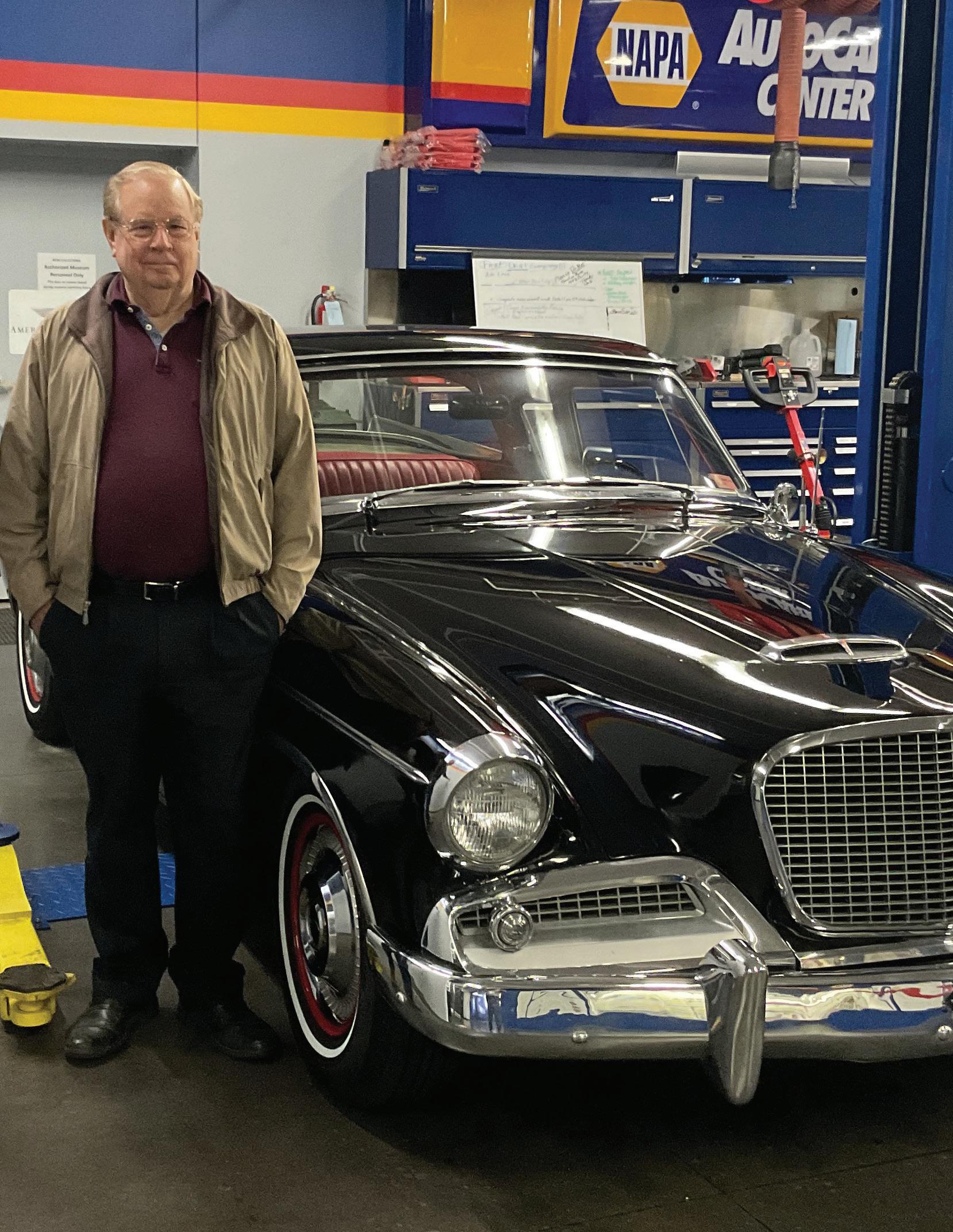
OPENROAD 39
Michael Huntley (left) with his 1959 Studebaker Silver Hawk, and the car’s previous owner Dennis Rech, were both present when Michael donated the car to ACM in memory of his late wife, Terry.

MILESTONES ANNUAL REPORT 2022
AUTOMOTIVE HERITAGE SOCIETY
RECOGNIZING THOSE WHO HAVE INCLUDED AAT OR ITS ENTITIES IN THEIR ESTATE PLANS
Karl and Christine Anderson
Nancy LeMay
David Madeira & Lynda Lowe Madeira
Dan and Susan McDavid
B. Corry McFarland & Donna McFarland
Michael J. and Chantelle Phillips
Michael & Michelle Phillips
Roger & Virginia Susick
Donald Tornberg
Michael & Pam Towers
William & Gail Weyerhaeuser
James & Sally Will
CONCOURS CLUB
INDIVIDUAL LIFETIME RECOGNITION
Concours Club Chairman
$1,000,000+
Karl and Christine Anderson 25
Stephen and Michele Boone 20
Nicola Bulgari and Beatrice 12
McKeel and Soon Hagerty 18
Helga Haub 2
Nancy LeMay 21
B. Corry McFarland & Donna McFarland 19
James Mennetto 12
Michael and Cindy Warn
William & Gail Weyerhaeuser 21
James & Sally Will 22
Concours Club Director
$500,000 – $999,999
Rod and Tammy Alberts 8
Bradbury and Caroline Cheney
Nancy Lematta
Paul & Gloria Miller 22
Michael J. and Chantelle Phillips 19
Michael & Pam Towers 7
Concours Club
$100,000 – $499,999
Jay and Terry Ackley 8
Anonymous
Sam Baker & Janice Coogan 6
Calvin & Joanne Bamford
John Barline 22
Yahn W. Bernier & N. Elizabeth McCaw 2
Dale Bloomquist & Heidi Horwitz 9
William and Sandra 17
Edward Carden
Kurt Carlson 4
Scott and Linda Carson
Dale and Leslie Chihuly
Craig & Lisa Chissus 4
Richard Cogswell and Esther Saunoras 12
Steve and Georgian Conway
Cork Corker
Gerri Craves
Ron and Marjorie Danz
Richard and Marlene Davis
Stanley Dickison 13
John B. and Diane Dimmer
Thomas and Sue Ellison 2
Michael and Dawn Fisher
Keith Flickinger & Christina Gaeta 5
Brian and Julie Forth 6
James and Sharon France
Dan Gilbert
Jeff and Kimberly Gordner
Larry and Virgina Gordon
Alan & Lisa Grant
Gerald & Keenon Greenfield 21
John and Virginia Groendyke
Peter Hageman
Eric Hawley and Gwen Lowery
Tom & Anne Marie Hedges 15
David & Sharon Hewitt
Richard Caldwell and Suzanne Hight 9
John and Christina Hogan 6
Michael & Diane Holmes 6
Larry and Ritchie Hood 11
Douglas Howe 5
Paul and Dinky Ianuario
George & Christy Ingle 19
Buck and Landon Kamphausen
Jerry and Germaine Korum
Craig and Cathy Landon
Doug LeMay and Mary Shaw
Jay and Mavis Leno
Raymond Loe
David Madeira & Lynda Lowe Madeira 22
James & Veronica May 14
Bruce McCaw
Dan and Susan McDavid
Thomas G. & Sally Mittler 5
Robert & Suzanne Noble
Michael T. and Michelle Phillips
Stephen Plaster
Cheryl Pope-Eagen
Mr Philippe Reyns & Mrs Francoise Reyns
Carl (Burt) Richmond and Diane Fitzgerald
Patrick & Julie Riley 5
Dean & Allyson Rogers
Candida Romanelli and Kevin Gingrich
Paul and Rhonda Sabatini 2
Steve & Liz Saleen
Manfred and Lori Scharmach 13
Henry Schatz
Eugene Selden
John Shirley
Kyle "Skip" Smith and Gayle Hampton-Smith
Roger & Virginia Susick 14
James and Dian Tallman
Graham and Julie Tash
Bruce & Peggy Wanta 12
Joan Watjen
Rainier and Linda Willingham
CONCOURS CLUB
ORGANIZATION LIFETIME RECOGNITION
Concours Club Chairman
$1,000,000+
AAA Washington
BC and DJ McFarland Foundation 6
City of Tacoma 4
Google Inc 5
Hagerty, Inc. 3
Hemmings Motor News
Sequoia Foundation 15
State Farm Mutual Insurance Company 2
State of Washington - Department of Commerce
The Gary E. Milgard Family Foundation
Concours Club Director
$500,000 – $999,999
Ascent Private Family Capital Management
AWBS1, LLC
Ben B. Cheney Foundation
Edward P. and Juanita J. Miller Fund 3
Forest Foundation
Griot's Garage, Inc.
Hedges Family Estate 6
M.J. Murdock Charitable Trust
NAPA Auto Parts - Genuine Parts 3
New York International Auto Show 2
Puyallup Tribe of Indians Charitable Trust
Seattle International Auto Show 3
Titus-Will Families Foundation 4
Concours Club
$100,000 – $499,999
Altradis U.S.A.
Arscentia, Inc. 7
Bardahl Manufacturing Corp
BMW Northwest Inc - Northwest MINI 13
BNY Mellon Wealth Management
Bonhams & Butterfields 2
Boone Family Foundation
Broken Point Foundation
Buffalo Restorations
Chihuly Studio 4
Coca-Cola Refreshments
Columbia Bank 12
Concrete Technology Corporation
Coker Tire Co.
CORT Party Rental 3
Craves Family Foundation
Dimmer Family Foundation 10 Ellison Foundation
Flex-a-lite Consolidated
Getty Images 2
Greater Tacoma Community Foundation 3
Hotel Murano 4
JTM Construction
Inde Motorsports Ranch
Korum for Kids Foundation
Microsoft Corporation
Michael Craft Photography
Mittler Family Foundation, Inc. 4
Moss Adams, LLP
North American International Auto Show 2
Olympic Eagle Distributing 5
Pacific Communications Group
Pacific Raceways 2
Park Place Ltd. 2
Passport Transport 2
Paul E. Andrews Jr. Foundation
Propel Insurance 2
Puget Sound Energy
Russel Investments
QL Community Investment Fund 2
Russell Investments
Sameday Auto Scratch & Dent Repair
Shell Oil Company
SiteCrafting, Inc. 2
Sports Car Market Magazine
Standard Parts
The Boeing Company
The Fitzgerald Group
The News Tribune
The True Collection, LLC
Titus-Will Enterprises, Inc. 5
Titus-Will Ford/Toyota 2
Trio Advertising Design Solutions
US Bank 6
Washington Liftruck, Inc. 3
Washington State Independent Auto Dealers Association
WeatherTech Raceway Laguna Seca
1
CLUB AUTO FOUNDER
LIFETIME INDIVIDUAL RECOGNITION
$10,000 – $99,999
Ron Adams 4
Thomas & Lenora Andres
Pamela Baade 2
Barby Barone 5
Hilary Barr Parker
Thad & Brenda Berger
Alex & Jamie Bernasconi 2
Louis & Bunny Berquest
Mardy Betschart
Robert Bevis 4
Charlie Billow 2
Ralph Borelli
Ashley Boyles 2
Michael Branning 2
Mike Brazier 2
Edward Brooks 6
Matt Cantoni 2
Richard Cardwell 8
John & Koko Carlson 2
John Carmack
Frank Chang 3
Lisa Chissus 4
Doug Clark
Jim Claypool 3
Trevor Cobb 6
Lianna Collinge
Daniel Cook 9
William Cotter
Sandy Cotterman 2
Gerri Craves
Robert Cross
Edward Cudahy
Richard Culp
Frank Daly 4
Ron Danz
Dennis Daugs 4
Karel Deibel
John DeYoung
William Diefenbach 2
Graham Dorland 7
Byron Drahold
Daniel Durr 3
Paul Ellingson
Thomas Ellison
Martin & Linda Ellison
Paul Etsekson 2
Patricia Fengler
Craig Floyd
John Folsom
Malcolm Forest-Kigar 2
Glenda Frame
Paul Fritts 2
Charlie Garthwaite
Frank Geyer 20
Christopher Gleason 2
Alan & Tamara Granberg 12
Dennis Green 2
Janet Gundlach 20
David & Janice Haley
Stephen & Judy Hamilton 2
Richard Hannah 2
Steven Hanson 11
Alex Haugland 2
Daryl Hedman 4
Rick Hendrick
Rodney Herring
Todd Hollander 2
Jesse Jameson & Linda Socquet-Jameson
Rock & Alison Jenkins 7
Timothy Johnson
Marwan Kashkoush 5
Barbara Kellogg 4
David Keudell
Ike Kielgass 14
Derek Klein 5
Jason Kors 5
Skipper & Ashley Kuzior 3
Danny Langdon
Robert LeCoque 2
Mary Lou Lindley
John Linvog 20
Douglas Lynch 2
Ian & Laura MacNeil 3
Mr Brown M. Maloney 6
Michael & Clare Marohn
Kirk McDonald 2
Nicole McDonald
Greg & Melanie McFarland 4
John & Nancy McGinnis 11
Michael McKinnon
John McMullen
John McQuown 3
June Mercer
John Mercer 3
Donald Meyer 2
Dale Meyer
Art Morrison
Glenn & Mary Lynn Mounger
Shirley Murphy 3
Glorrian Nau 12
E. Noble
Randy Olson 2
Mark Osborne
Charles Overaa 4
Brian & Randy Pollock
David Pyle
Wendy & William Rabel 8
Arthur Redford
Anthony Reed
Karen Reffner 2
Mark & Analee Reutlinger 2
Carl Richmond
Fred & Anne Roberson 3
Michelle Robinson & Hasmid Haro 3
David Robson 5
Richard Rurak
Randy & Karen Rushforth 2
Kjell & Keely Schei 2
Raymond Schuler 3
Esther Shacket 2
Michael Silver
James Snow 3
Lynn & Kathy Sommers
Janet Sprynczynatyk 4
Peter Stanley 2
Barbara Stephanus 4
Craig Stull
Dean & Audrey Stupke 11
Paul & Karen TeGantvoort 3
Michael and Nannette Thoe 18
Eric Thoe 6
Bob & Shelley Tomberg 6
Steven Travis
Larry & Jane Treleven
Ellen Vener 2
John & Lore Wagner
Edward Welburn 2
Jason Wenig
Drew Weyerhaeuser 6
Roger White 3
Jamie Williams
Doug & Victoria Wolford 16
Deanna Woodruff
Gary Young
Chris Zocco
CL UB AUTO FOUNDER
ORGANIZATION RECOGNITION
$10,000 – $99,999
AAA Colorado 2
Alaska Airlines, Inc. 2
Altadis USA 3
Ambassador Wines of Washington 5
Anonymous
Antique Automobile Club of America
Apex Foundation
ArtsFund
Atlas Copco Compressors Inc.
AUTO Aficionado
Auto Warehousing Co.
Automotive Restorations, Inc.
Baker Foundation 2
Bamford Foundation
Bardahl Manufacturing Corp
Boeing Company Gift Match Program 4
Boone Family Foundation 2
Branning Family Charitable Fund
c/o Bank of America Charitab
Car Property Group
Car Toys, Inc
Charles Davol Test Fund of Donors Trust 5
Chevrolet Motor Division 4
Classic Car Club of America - PNW Region 2
Club Auto Sport
Collectors Foundation 4
Comcast Cable
Creative Discovery Museum 2
CXC Simulations
DCG ONE 2
Delta Air Lines, Inc.
Detroit Auto Dealers Association
Detroit Club
El Gaucho 2
El Gaucho Hospitality
Elliott Bay Auto Brokers 2
Ellis Legal P.C. 2
Everett J Prescott Inc
Footprints Foundation 3
Ford Motor Company
Fresh Northwest Design 3
Fuller Family Charitable Trust 8
Gallopin' Gertie Model A Club
Gordon Truck Centers, Inc. 5
Hagerty Drivers Foundation
Harbor Pacific Properties
Harold Mather Inc. Auctioneers 2
Hendrick Automotive Group
Heritage Bank
Heritage Distilling Company Inc 6
Hilton Head Island Concours
D'Elegance 2
Imagination The Americas Inc
In-Gear Media Marketing
Inland Northwest Community Foundation 2
J & L Fabricating 2
JEB Charitable Fund
JP Morgan Chase & Co Bank 2
JTM Construction
Kawasaki Family Foundation
Kettering University 2
Key Bank
Key Bank Foundation 6
Korum For Kids Foundation
Lincoln of Troy 3
McGladrey LLC
Michelin North America
Microsoft Matching Gift Program 17
Moccasin Lake Foundation
Northwest Chevy Dealers
NW Alfa Romeo Club
NW Ford Dealers Advertising Association
Omdurman LLC dba Avantia Wealth 2
Pacific Portfolio Consulting LLC 2
Pebble Beach Concours d'Elegance 2
Pentera
Pierce County
PJ Hummel & Company, Inc.
Plycar 4
PNC Financial Services Group, Inc. 3
Polaris Industries Inc
Popskull, Inc. 3
Porsche Bellevue
2
Porsche Club of America, Pacific North-west Region 5
Port of Tacoma
Prairie Foundation 2
Precision Motor Cars, Inc.
Prometheus Fuels
Puget Sound BMW Dealers
Rainier Pacific Foundation
RM Auctions Sotheby's
Rodda Paint Company
Ron and Marjorie Danz
Charitable Trust
RPM Foundation 3
Saleen Automotive
Selden's Home Furnishings
Showcase Media 3
Simpson Investment Company
Sportscar Vintage Racing Association SVRA
Tacoma Industrial Properties
Tacoma Public Utilities
The Creative Workshop
The Gottfried and Mary Fuchs Founda-tion
The NB Center for American Automotive Heritage 2
The Norcliffe Foundation
The Richard H. Driehaus Charitable Lead Trust
The Russell Family Foundation
The Sound Factory 4
The W. J. Barney Foundation Inc. 4
Titus-Will Chevrolet/Cadillac/ Hyundai 4
Tom Douglas Restaurants 3
Toyota Motor Sales USA, Inc.
TriArc Electric Supply, LTD 4
TubeArt Signs and Sports
Twenty-Seven Foundation 5
Uptown Gig Harbor
Valet Parking Systems 3
Washington State Auto Dealers Associa-tion 3
Weyerhaeuser Company 2
William Ewing Foundation 4
Woodward Canyon Winery 6
Worldwide Group
CLUB AUTO ANNUAL GIVING
Individuals
$1,200 – $9,999
Ron Adams 4
David Barrett 8
Kevin Beech
Mauricio Bendana 2
Doug Clark
Frank Daly 4
John DeYoung
Douglass & Catherine Fox
Stephen & Judy Hamilton 2
Kenny Heng 6
Brandon & Jodi Kelly
Randy Kerdoon
Jerry Korum 2
Robert LeCoque 2
Kristina LeMay
John Linvog 20
Ian & Laura MacNeil 3
Davis Mock 3
Dante' Morelli 2
Kevin O'Connor 6
Bruce & Shirley Quaintance 9
David Robson 5
Jon Seltenheim
Mindy Shaw
Ashley Shoemaker 5
Kyle - Skip Smith
Peter Stanley 2
Barbara Stephanus 4
Larry & Jane Treleven
Nathan Wambold 2
Chris Zocco
CLUB AUTO ANNUAL GIVING
Organizations
$1,200 – $9,999
Adam's DJ Service 2
Coker Tire Co.
FogRose Catering 2
Greg D and Melanie S McFarland Foundation 3
Michigan Hot Rod Association
NADA Foundation
KEY LEVEL DONORS
INDIVIDUAL ANNUAL GIVING
Gold Key Driver
$600 – $1,200
Philip & Rebekah Benson 4
Kirk Bugg
Elizabeth & Jeff Devitt 2
John Diedrich 2
Frank Geyer 20
Ken & Deb Hallis 8
Donn & Debbie Irwin 2
Christopher Kang 6
Thomas Kassens 11
The Kimball Family
Mark Mello 2
Mark Metzger 5
Brian Nash 5
Keith & Gail Newman 0
Kurt & Mona Owen
Esther Shacket 2
Tom Stow 6
Silver Key Driver
$300 – $599
David Alexander
Ernie Ammons 4
Richard Anderson
Marion & Mary Ann Bartholomew 15
Bill Belknap 2
James & Stephanie Bell 4
Andrew Brastad 2
Steven Brown 12
Zigmond Burzycki 2
Kim & Rocco Buty 2
Mary Calderon
Charles Carlson 2
Thomas & Mary Alice Clark
James Colwell 2
Robert Echevarria 2
Paul Eklund
Bill Eldridge
Christopher & Anjanelle ElFrank 2
Ryan Flynn
Peter Ford & Jerry Ford 3
Kathe Frahm
Greg Garner 2
Roxanne Gates & Robert Ware
David & Anglea Goldsmith
Jim Grey
Ghada Hafez & Walid Hussein 7
Guy & Tammy Hall
William Hallett 5
Thomas Hamilton
Rich & Sharon Hamilton 3
The Hawthorne Family 12
Bill Heather
James Hoerling 2
Brent Hughes
John Johnson 2
Duncan Johnson 14
Jim & Cathy Kakuska
Kevin & Jennifer Kelley
David Keudell
John & Meredith Kincl 6
Dave Kingstone 2
The Koop Family 2
Marlyn Kraft
Stanley Krohn 2
Tony & Cindy Lawrence
Ryann & Eric Leonard 4
Marc & Angela Levick
Bryan Liming 4
Terry Lockhart 3
Berquest Louis
Bart Lovely 3
Archie Matthew 6
Devon Miller & Ashley Cook
Charles & Angeline Mitchel
David Munoz & Winn Archambeau-Munoz 4
James Nafziger 2
Meredith & Erik Neal
Bradley & Kathy Nysether 2
Roger Oyama
Nancy & Tad Papineau 3
John & Kim Patterson 5
Michael Peck 2
Jared Petiprin
Michael Portmann 21
Mickey Portnoy 2
Liana Potts 2
Tom Prentice
Dennis & Geraldean Quigley
James & Joan Reece
Steven & Leslie Robinson 14
The Rohrback Family 15
Alex Ruozzi
Al Ruozzi
D’Arcy Salzmann 3
John & Rose Scheidt 2
Merrill & Carol Severson 22
James Shepherd 3
Nicholas Stanton 2
John & Patsy Treece 2
Reid & Sue Trummel 7
Hao Truong
Fred Wagner 2
Richard & Catherine Wakefield 15
Nick & Andrea Weder 2
Lisette Welk 2
Matthew Winningham 6
Wade & Theresa Winslow
Douglas Zaitz 2
Frank Zangar 16
3
Together, We Drive Forward.
America’s Automotive Trust was founded in 2016 with the vision of bringing together like-minded organizations through collaboration and shared resources to perpetuate car culture. Today, we are proud to work with LeMay – America’s Car Museum, RPM Foundation, Club Auto and our affiliate institutions of The NB Center for American Automotive Heritage and the Gilmore Car Museum to foster a strong community where all enthusiasts can thrive – from the classroom, to careers, to the open road – and to secure our automotive heritage.


SUPPORT OF:

OPENROAD

AmericasAutomotiveTrust.org AFFILIATE INSTITUTIONS:
44
Preferred Providers
Providers
7 Seas Brewing
Adam's DJ Service
Alaska Airlines, Inc.
Avantia
BMW Northwest, Inc./Northwest MINI
Columbia Bank
El Gaucho
FogRose Atelier Group 2 Automotive
Heritage Bank
Heritage Distillery
JAM GD
Karl Noakes Photography
Nurge Media
Pacific Portfolio Consulting LLC



Porsche Bellingham
Porsche Tacoma
Prometheus Fuels
Summit Racing Equipment

TriArc Electric Supply, LTD
Thank you to all our current sponsors!
OPENROAD 45



Administrative: 2702 East D Street, Tacoma, Washington 98421 Phone: 253.779.8490 T oll Free: 877.902.8490 Fax: 253.779.8499 Website: americasautomotivetrust.org TrustAMERICA’SAUTOMOTIVE Securing America’s Automotive Heritage CELEBRATE 75 YEARS OF PORSCHE AT AMERICA'S CAR MUSEUM Driving Forward – Join Us! clubauto.org










































































































 By Gabriel Mosse Director of Development AAT
By Gabriel Mosse Director of Development AAT










